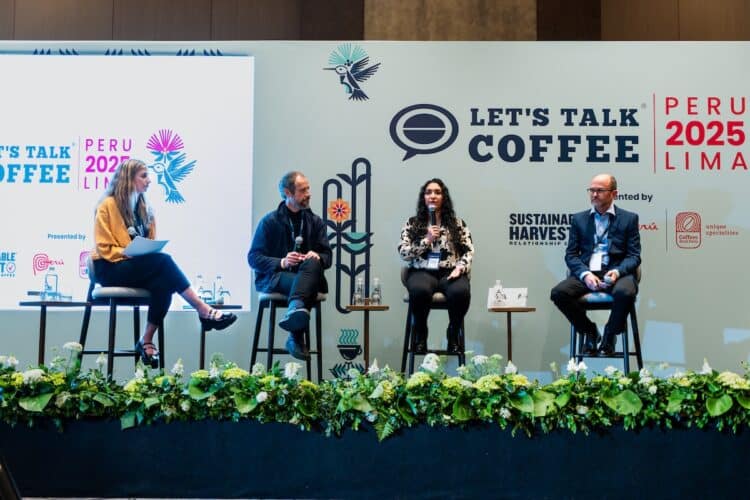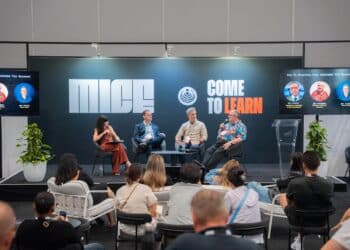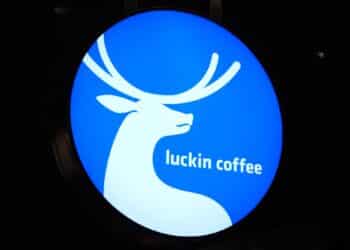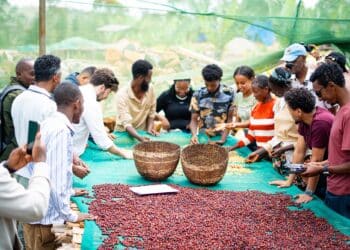Coffee importer Sustainable Harvest has concluded the 20th edition of its Let’s Talk Coffee (LTC) event, cutting through the noise to tackle the industry’s biggest issues such as government involvement in the coffee industry, producer financing, technology, and regenerative agriculture.
The three-day event, which took place at the end of September at the Real InterContinental Lima Miraflores in Peru’s capital with an, involved attendees from across the coffee value chain.
Participants included producers from Brazil, Colombia, Guatemala, Honduras, Nicaragua, and Peru. One-third were from consuming countries, including green buyers from Canada, England, South Korea, and the USA.
Under the theme The Climate of Business & the Business of Climate, LTC 2025 covered the ongoing volatility in the global coffee marketplace and the impacts on producers and roasters.
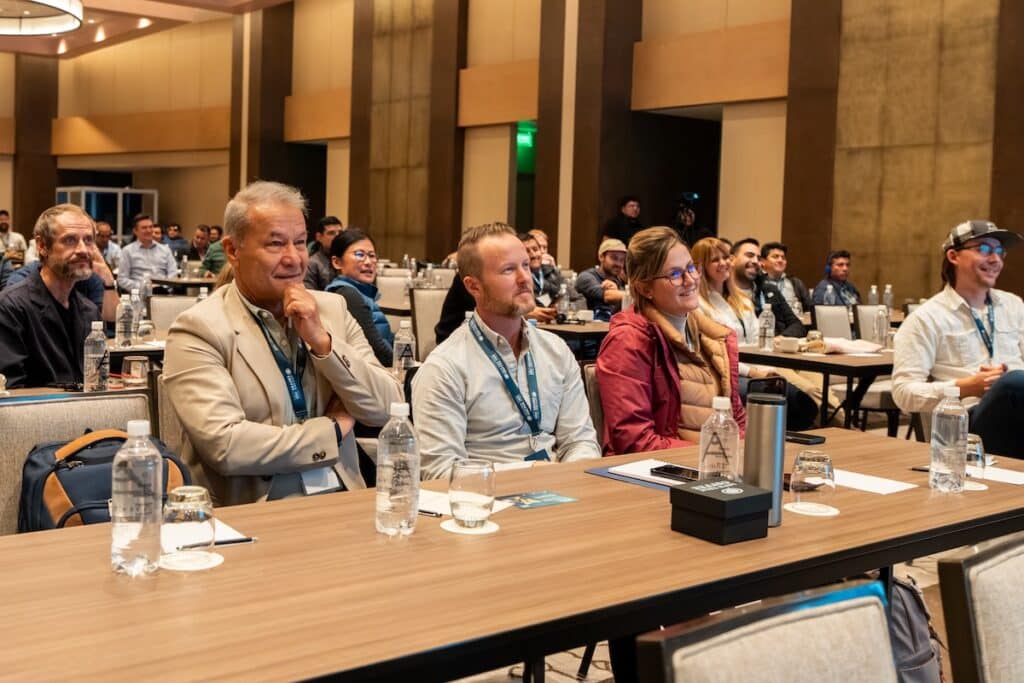
Dr Aaron Davis, Senior Research Leader of Crops & Global Change at Royal Botanic Gardens in Kew, England, kicked off proceedings with a keynote speech addressing the long-term forecast for Arabica production and the need to consider alternative species.
Jordan Hooper, Head of Green Coffee Trading for Sucafina – Sustainable Harvest’s parent company – followed with a presentation on the current state of the industry.
The following day, Kat Nolte Ferguson, Managing Director of Sustainable Harvest, which has partnered with more than 200,000 smallholder farmers, shared the company’s audited financial information with all attendees. It was thought to be the first case of a green coffee importer providing full financial transparency at an industry event.
In addition to the main educational program, LTC 2025 featured three well-attended cupping sessions that showcased samples from Sustainable Harvest’s supplier network in Peru, as well as in other Latin American origins.
Dr Davis and Ben Brewer, Senior Director of Global Coffee Quality & Innovation at Blue Bottle Coffee, led the attendees in a tasting of five Excelsa and Liberica species roasted and provided by Blue Bottle.
A representative from World Coffee Research also conducted a workshop on genetic integrity and quality of seed sources, using Peru as a case study.
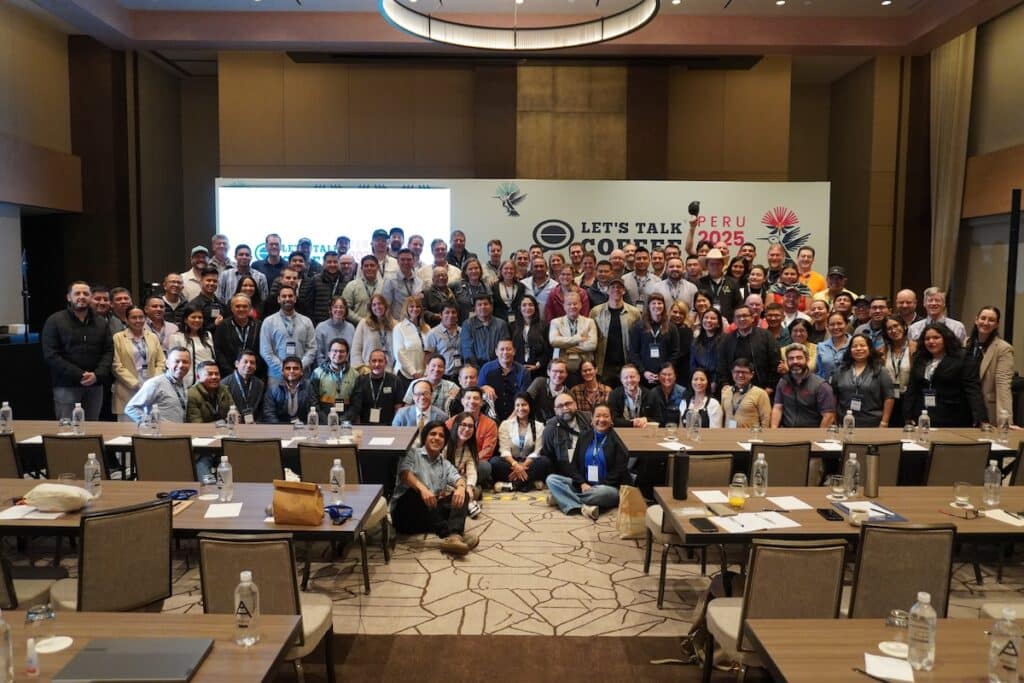
As the strategic partner of LTC 2025, the Comisión de Promoción del Perú para la Exportación y el Turismo (commonly known as PROMPERÚ) provided both financial backing and promotional materials.
Other key supporters included Be Perú MICE, Cámara Peruana del Café y Cacao, Coffee Quality Institute, Destilería La Caravedo, Grupo Aste, Grupo RomEx, HVC Exportaciones, and Sanremo Coffee Machines.
“Lima was a great host city for this event,” says Al Liu, Director of LTC.
“We sincerely appreciate the support of everyone who made LTC 2025 possible – especially PROMPERÚ, with whom we collaborated for well over a year. Peru really has come into its own as a specialty origin, and PROMPERÚ has been at the forefront of promoting the country’s diverse coffee-growing regions.”
Immediately following LTC 2025, a sizeable group of roasters, accompanied by Sustainable Harvest staff members, travelled to northern Peru to visit Finca Churupampa, CAC La Prosperidad de Chirinos, APROCASSI, and other key suppliers.
Sustainable Harvest plans to conduct the next LTC in 2027, with several host countries already in consideration.

